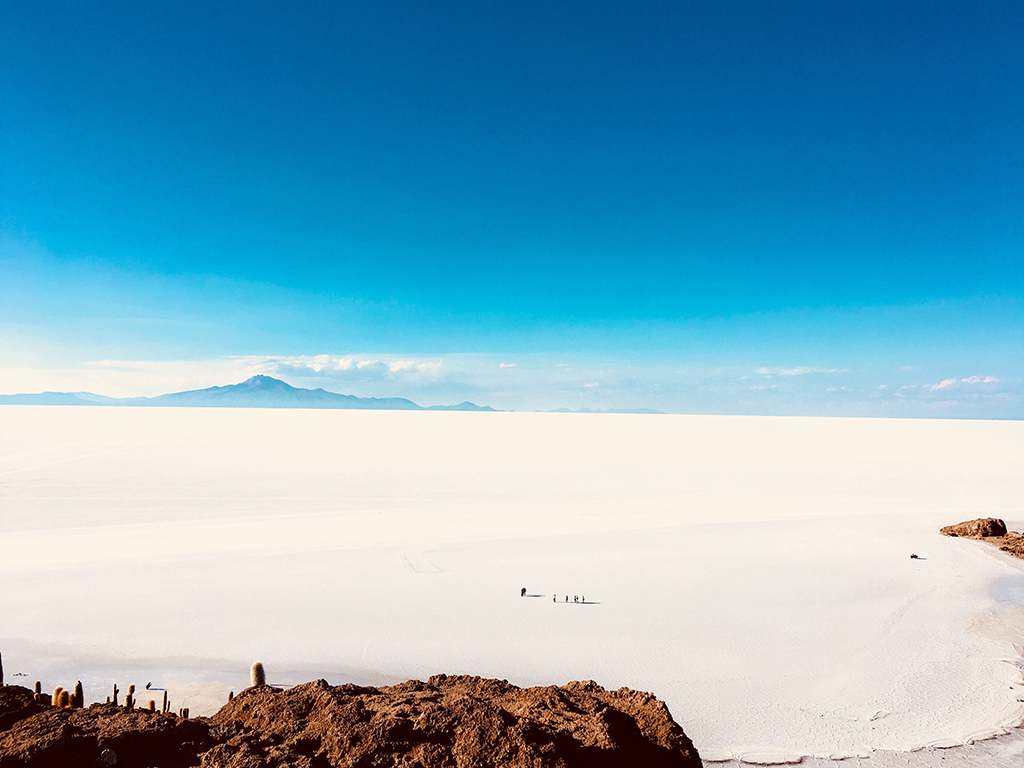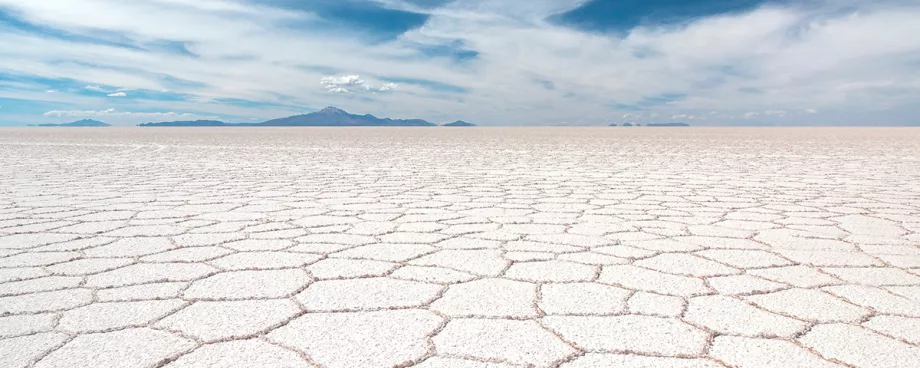- Deposits at Salar de Uyuni are estimated at 10 million tons of high-quality lithium.
- The start of production is scheduled for the second half of 2021.
- Initial investments amount to approx. EUR 300 million.
Lithium – a Key Raw Material of the 21st Century
Lithium is an elementary component of rechargeable lithium-ion batteries, which are found today in almost all battery-powered devices - from smartphones and e-bikes to cordless screwdrivers and electric vehicles. The "white gold" is also needed for storage systems that store energy from renewable sources. This makes the light metal a key raw material of the 21st century, and the demand for it is expected to double by 2025. One of the world's largest lithium deposits is located at Salar de Uyuni in the Bolivian Andes - around 10 million tons of high quality lithium.

A win-win Situation
The partner company YLB-ACISA creates added value for both countries. For the first time in decades, Germany has secured direct access to non-domestic raw materials. This is particularly important for the German automotive industry due to the emerging electromobility boom.Bolivia holds 51 percent of the shares through the state-owned company YLB. The partnership thus enables the South American country to develop a future- oriented industry and create prosperity for the population. The start of production of lithium as a raw material is scheduled for the second half of 2021. By the end of 2022, an annual production capacity of 35,000 to 40,000 tons of lithium hydroxide is targeted. On the basis of a feasibility study, investments for this project currently amount to approximately 300 million euros. There are plans to further expand capacity.
Environmentally and socially compatible Extraction and Industrialization
With the joint venture, the partners are also breaking new technological ground. For example, state-of-the-art technology is implemented to extract and industrialize lithium in a sustainable, environmentally and socially compatible way. Together with partner companies, in particular K-UTEC AG Salt Technologies, ACISA has developed a globally-unique process for this purpose. It enables a high lithium hydroxide yield to be obtained from residual brine with a high magnesium content. At the same time, the innovative process cuts water consumption by around half compared with the technologies used to date.In order to significantly reduce CO2 emissions, 20 to 30 percent of the plant's energy requirements are provided by its own photovoltaic system at Salar de Uyuni. These technologies make a significant contribution to the sustainable and cost-efficient extraction of this raw material. In addition to lithium, other raw materials important for industrial use are also extracted from the residual brine, thus reducing waste to a minimum.The energy and mobility initiative will create around 1,000 direct, skilled jobs and up to 10,000 indirect jobs in Bolivia. The transfer of know-how is an essential part of ACISA's services. This includes the training and qualification of employees as part of the planned German-Bolivian training partnership.There are also plans to set up a social foundation to which part of the jointly- generated profits will go to train and qualify young people in Bolivia. These and other measures will help to ensure that the Bolivian-German energy and mobility initiative results in sustainable energy and future prospects as well as profits both for Bolivia and Germany. (Source: ACI Systems Alemania)
■







